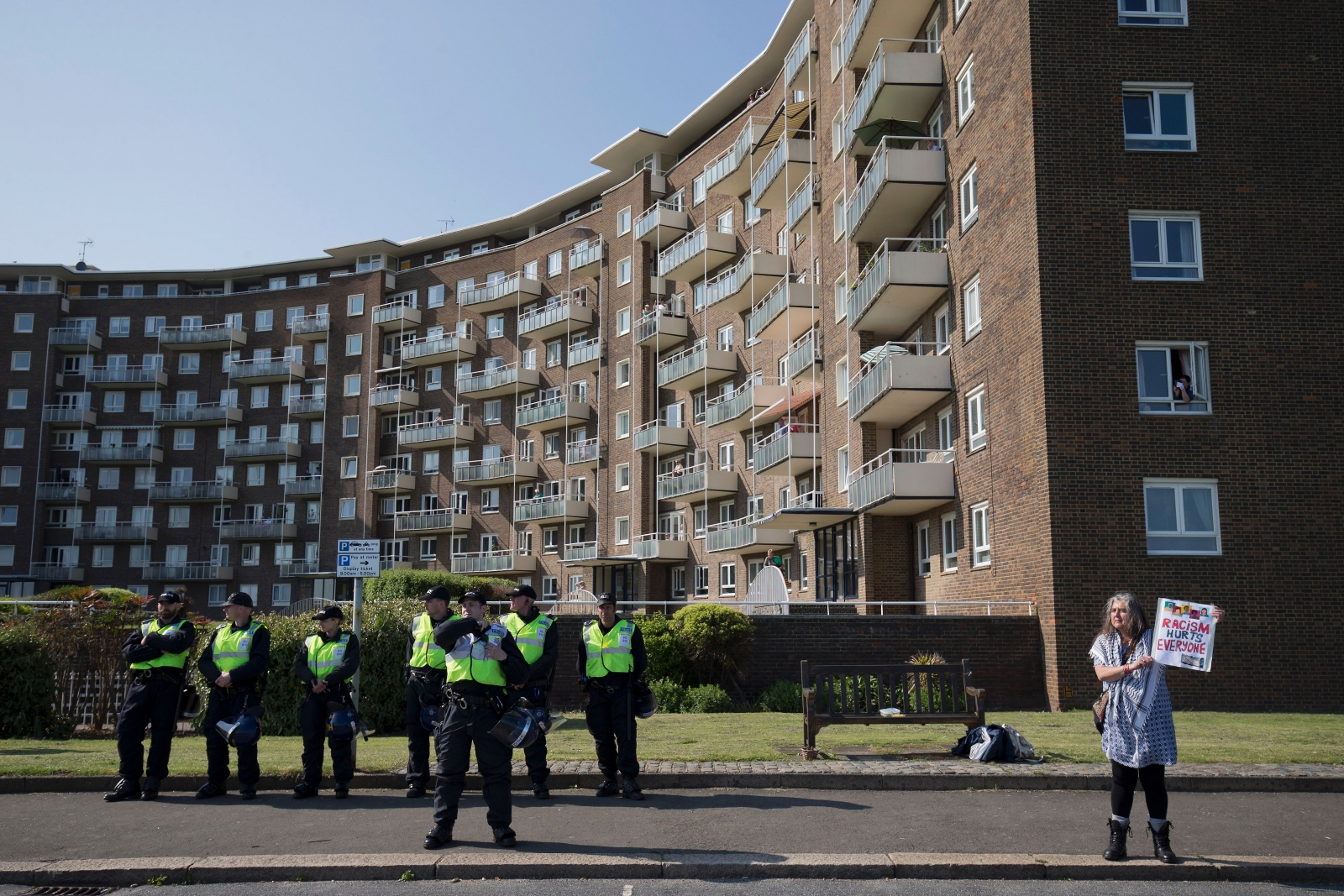The Aftermath Of A Hate Crime: A Family's Struggle For Justice

Table of Contents
The Immediate Aftermath: Trauma and its Impact
The emotional and psychological toll on victims and their families immediately following a hate crime is immense. The experience is often deeply scarring, leaving lasting psychological wounds that require significant time and effort to heal. The initial response is frequently characterized by:
- Shock, fear, and anxiety: The sudden and unexpected nature of a hate crime can lead to overwhelming feelings of vulnerability and insecurity. Victims may experience heightened anxiety, difficulty sleeping, and intrusive thoughts related to the event.
- Disruption of daily life and routines: The aftermath of a hate crime can significantly disrupt daily life. Victims may struggle to return to work or school, avoid public places out of fear, and experience difficulty maintaining their normal routines. This disruption can exacerbate existing mental health conditions or trigger new ones.
- Physical injuries and their long-term effects: Beyond the immediate physical wounds, hate crimes can result in chronic pain, long-term disabilities, and the need for ongoing medical care. These physical consequences further compound the emotional trauma experienced by victims.
- The need for immediate medical and psychological support: Accessing immediate medical attention for physical injuries and psychological support for trauma is crucial. This includes seeking help from emergency services, medical professionals, and therapists specializing in trauma.
- The importance of connecting with support groups and counselors specializing in trauma related to hate crimes: Connecting with others who have shared similar experiences can provide invaluable support and validation. Support groups and specialized counselors can help victims process their trauma and develop coping mechanisms.
Navigating the Legal System: Reporting and Prosecution
Reporting a hate crime and navigating the subsequent legal process can be incredibly challenging. Victims often face significant hurdles, including:
- Reporting a hate crime to the appropriate authorities (police, FBI): It’s vital to report the incident promptly to the relevant law enforcement agencies, providing as much detail as possible. Understanding the reporting procedures and knowing which agency to contact is crucial.
- Gathering evidence: photos, videos, witness statements: Preserving evidence is essential for building a strong case. This includes taking photographs of any damage, collecting video footage if available, and obtaining statements from any witnesses.
- Working with law enforcement and prosecutors: Victims need to be prepared for a potentially lengthy and complex investigation. They should actively cooperate with law enforcement and prosecutors, providing all relevant information and attending necessary legal proceedings.
- Understanding the legal definitions and classifications of hate crimes: Hate crime laws vary by jurisdiction, making it essential for victims and their legal representatives to understand the specific legal definitions and classifications applicable in their case.
- Challenges in prosecuting hate crime cases: Proving the motivation behind a crime as hate-driven can be difficult. Prosecutors need to establish a clear link between the crime and the perpetrator's bias against a protected group.
- The role of civil lawsuits in seeking compensation: In addition to criminal prosecution, victims may pursue civil lawsuits against perpetrators to seek compensation for damages, including medical expenses, lost wages, and emotional distress.
The Long Road to Recovery: Healing and Support
The long-term recovery process from a hate crime is complex and requires ongoing support and care. This journey involves:
- Therapy and counseling for trauma recovery: Professional therapy is essential for addressing the psychological trauma caused by a hate crime. Therapy can help victims process their emotions, develop coping mechanisms, and rebuild their sense of security.
- Support groups for victims of hate crimes: Connecting with others who understand their experiences provides invaluable support and reduces feelings of isolation. Support groups offer a safe space for sharing experiences and building resilience.
- Accessing financial assistance for medical bills and legal fees: The costs associated with medical care and legal representation can be significant. Victims should explore avenues for financial assistance, including government programs and charitable organizations.
- Community support and advocacy organizations: Community-based organizations and advocacy groups play a crucial role in providing support, resources, and advocacy to victims of hate crimes.
- The importance of self-care and building resilience: Self-care practices, such as exercise, mindfulness, and healthy eating, are crucial for building resilience and promoting healing.
The Fight for Justice: Advocacy and Awareness
Addressing the root causes of hate crimes requires a multifaceted approach that includes:
- Advocacy groups working to combat hate crimes: Many organizations dedicate themselves to fighting hate crimes through advocacy, education, and support services.
- Raising awareness through education and community outreach: Education plays a critical role in promoting understanding, empathy, and tolerance, thus reducing the likelihood of future hate crimes.
- Legislative advocacy for stronger hate crime laws: Strengthening hate crime laws and ensuring robust enforcement mechanisms are crucial for holding perpetrators accountable and deterring future offenses.
- Promoting tolerance and understanding to prevent future hate crimes: Building inclusive communities requires fostering tolerance, understanding, and respect for diversity.
Conclusion
The aftermath of a hate crime is a deeply challenging experience for victims and their families. This struggle for justice requires navigating a complex legal system, addressing significant emotional trauma, and advocating for change. While the path to recovery is long and arduous, access to appropriate support systems, legal aid, and community resources is crucial. Understanding the impact of a hate crime and actively participating in efforts to combat hate and intolerance are essential steps in fostering safer and more inclusive communities. If you or someone you know has been a victim of a hate crime, seek immediate help and know that you are not alone. Learn more about resources and support for victims of hate crimes and get involved in the fight against hate. Remember, reporting a hate crime is a crucial step towards achieving justice and preventing future incidents. Don't let hate win; fight for justice and report hate crimes.

Featured Posts
-
 Nhl Prediction Oilers Vs Sharks Betting Odds And Expert Picks
May 10, 2025
Nhl Prediction Oilers Vs Sharks Betting Odds And Expert Picks
May 10, 2025 -
 Oilers Beat Kings In Overtime Tie Western Conference Series
May 10, 2025
Oilers Beat Kings In Overtime Tie Western Conference Series
May 10, 2025 -
 Ocasio Cortez Calls Out Pro Trump Fox News Commentary
May 10, 2025
Ocasio Cortez Calls Out Pro Trump Fox News Commentary
May 10, 2025 -
 Attorney General Pam Bondi And The Alleged Epstein Client List A Deeper Look
May 10, 2025
Attorney General Pam Bondi And The Alleged Epstein Client List A Deeper Look
May 10, 2025 -
 Hurun Global Rich List 2025 Elon Musks Net Worth Drops By 100 Billion But Still Worlds Richest
May 10, 2025
Hurun Global Rich List 2025 Elon Musks Net Worth Drops By 100 Billion But Still Worlds Richest
May 10, 2025
